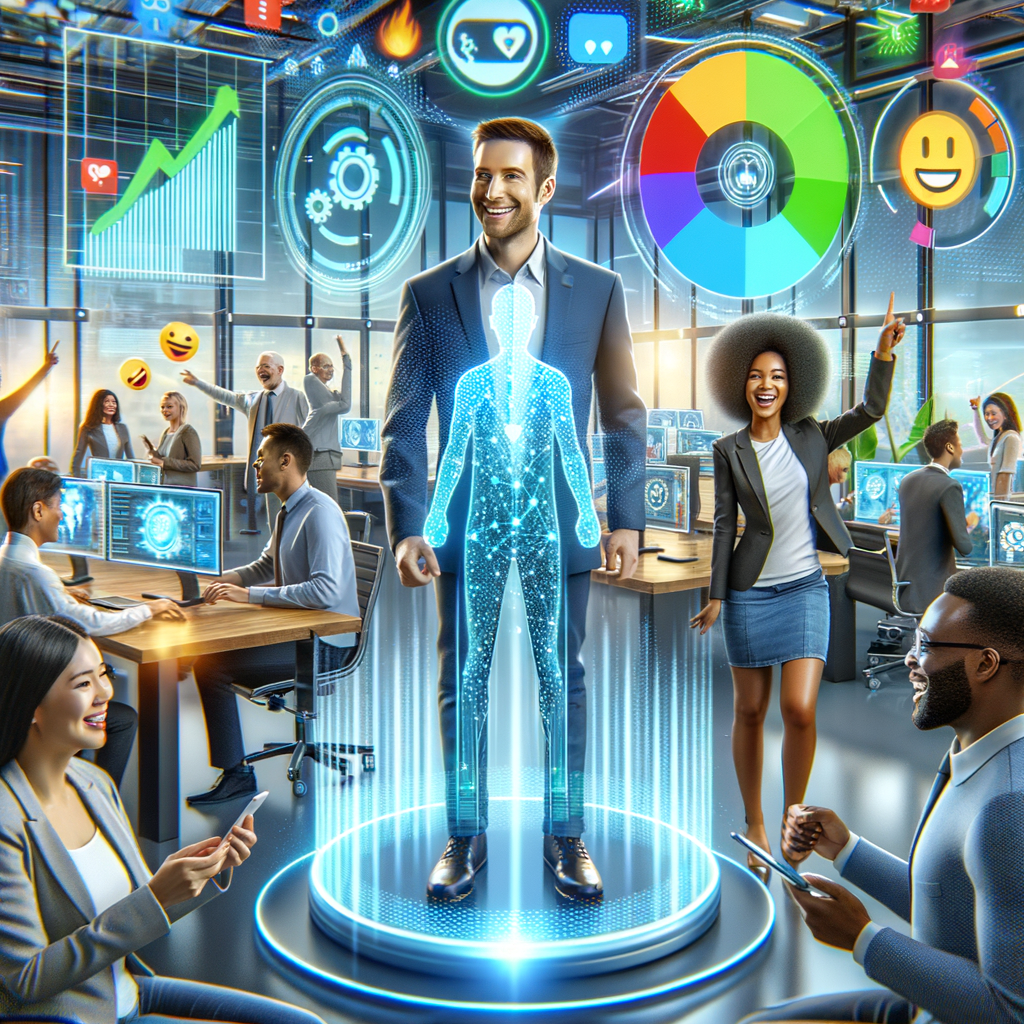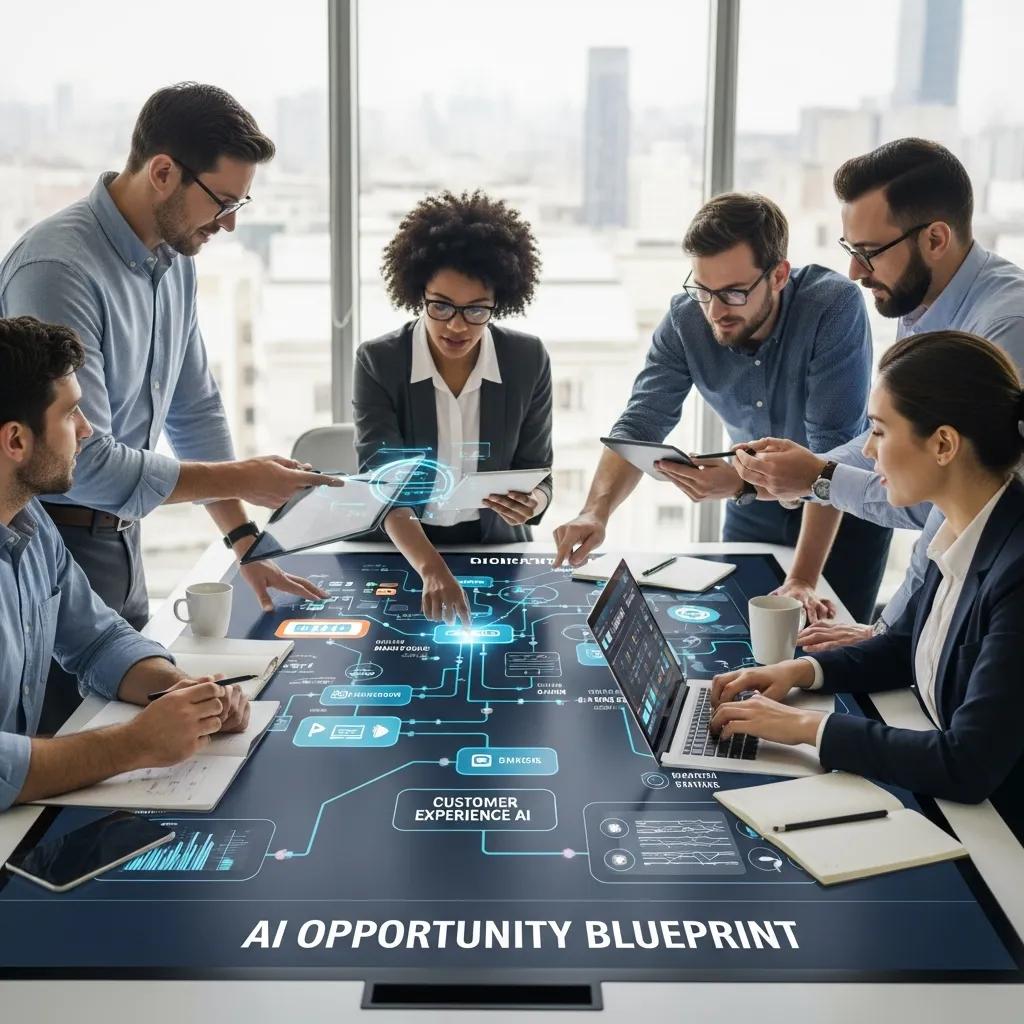Are your employees truly engaged? Or are they just going through the motions? In today’s fast-paced business world, keeping employees motivated and invested is more critical than ever. AI-powered employee engagement tools offer innovative solutions to boost morale, productivity, and retention. These tools provide data-driven insights, allowing you to understand your workforce on a deeper level and enhance employee experience.
How AI Is Revolutionizing Employee Engagement
Many workers share anxieties around AI and job displacement. However, 72% of employees trust AI to improve their work. A recent Tech.co study revealed almost 60% of employees experienced higher job satisfaction since incorporating AI in the workplace.
AI, a machine’s ability to mimic human cognitive functions, drastically improves employee engagement. This aligns with Qualtrics’ 2024 Employee Experience Trends Report. The report highlights engaged employees welcoming AI benefits, showcasing human-machine collaboration.
Streamlining Tasks and Boosting Productivity
AI excels at handling repetitive tasks that often burden employees. This includes scheduling meetings, sorting emails, and drafting routine responses. Automating these activities frees up employee time for more strategic work.
This increased focus boosts overall productivity and employee progress. With workers saving over three hours weekly, AI automation offers significant time savings.
Personalized Learning and Development
AI analyzes employee data to understand skill gaps and learning styles. This allows for personalized learning paths tailored to individual needs. This personalized approach boosts professional growth.
It ensures employees remain engaged in their development journey. AI technology empowers personalized learning, boosting professional development and talent management.
Real-Time Feedback and Sentiment Analysis
AI offers insights into employee morale through real-time feedback. AI-powered tools gather information through various channels. This includes feedback forms, pulse surveys, and even social interactions. This also allows you to analyze employee performance data.
Understanding and responding to these needs fosters a supportive workplace. Platforms like TinyPulse help HR discover areas for improvement, including company culture. This is a significant advantage for organizations using AI employee engagement tools.
AI-Powered Employee Engagement Tools: A Deeper Dive
While AI tools offer several advantages, not all software is effective. Over half of all workers find some tools outdated or difficult to use. Fortunately, many excellent options avoid these problems. These employee engagement AI tools enhance the employee experience through several ways.
AI Chatbots for Instant Support
AI chatbots provide instant answers and streamline self-service. They address basic queries about leave policies or procedures. This leads to less employee frustration.
AI virtual assistants improve customer service. Happy employees translate to happy customers, as highlighted in a Zendesk post about AI improving employee experience. AI-powered chatbots provide valuable 24/7 support and streamline communication.
AI-Powered Performance Management Systems
AI-powered systems offer an alternative to traditional yearly reviews. They enable real-time performance data analysis. This facilitates continuous, personalized feedback.
This creates a growth-oriented atmosphere and enhances employee development. Despite its potential, only 6% of CEOs find meaning in AI-driven performance management. These AI systems enhance performance appraisals and help managers provide tailored feedback and employee listening.
Predictive Analytics for Proactive Management
Predictive AI anticipates experience trends based on real-time data patterns. This provides insights into potential resignations, enabling proactive intervention. Addressing concerns, especially regarding top talent, is crucial for retention. This provides actionable data, allowing you to analyze employee performance and develop action plans.
Finding and fixing experience gaps improves employee retention. This proactive approach addresses employee experience trends and enhances performance management. Predictive analytics helps track employee progress and provides valuable insights.
| Tool Type | Benefits | Example |
|---|---|---|
| AI Chatbots | 24/7 support, quick answers, reduced HR workload | Leena AI |
| Performance Management Systems | Real-time feedback, personalized development plans, gathering feedback | Lattice |
| Predictive Analytics | Proactive intervention, reduced turnover, honest opinions | Visier |
Navigating the Challenges of AI in Employee Engagement
Despite its power, AI presents challenges. Transparency builds trust with employees wary of intrusive practices. Clearly explain the technology’s purpose and how AI helps employees in their daily tasks. This helps in gathering feedback and ensuring data security.
Limit the collection and sharing of personal data. Employee data privacy is paramount, and following guidelines builds trust with your staff. Responsible data management strengthens employee engagement.
Addressing Privacy Concerns
Be transparent with staff about data handling. Explain how information is collected, shared, and protected. Sensitive employee data requires careful management. AI engagement employee programs should follow guidelines and focus on enhancing employee engagement in ethical ways. Always prioritize data privacy and transparency.
This promotes trust and reinforces a culture of responsibility.
Mitigating Bias in AI Systems
Data used to train AI can reflect existing biases. This can lead to prejudiced actions, such as biased hiring selections. Regular data monitoring is essential to mitigating these biases. Historical data must be scrutinized to avoid misleading insights from historical data.
Address these issues promptly to avoid real-world problems. This proactive approach strengthens employee engagement at all management levels. AI-driven insights require human intelligence to mitigate potential risks.
FAQs about AI-powered employee engagement tools
How is AI used in employee engagement?
AI has many applications in employee engagement. It analyzes employee feedback for patterns, automates tasks, personalizes learning, predicts employee attrition and facilitates real-time feedback and employee listening.
What are the best AI tools for HR?
Popular AI tools include Leena AI for chatbot support, Lattice for performance management, and Visier for people analytics. They assist in analyzing employee performance, managing performance appraisals, and implementing employee listening programs.
What are the 5 C’s of employee engagement?
While some articles mention four, there isn’t an official “5 C’s.” Different sources highlight various key areas related to employee experience. Therefore it is critical to use proper AI powered tools in order to maintain high satisfaction levels.
What is the most commonly used tool to measure employee engagement?
Employee surveys, including regular and pulse surveys, along with other feedback channels, are common for measuring employee engagement. Data-driven insights are valuable for making informed decisions. These data sources can reveal experience gaps and suggest actions to track employee satisfaction. These employee engagement AI systems can offer a powerful toolset to boost engagement and cultivate a thriving workplace.
Transforming the Future of Employee Engagement
AI-powered employee engagement tools are essential for modern workplaces. From instant insights to enhanced experiences, AI provides valuable assistance. This allows for personalized programs based on collected data. AI systems assist with administrative tasks and enhance existing management systems and software. These ai tools enhance current performance management systems.
Privacy and bias concerns require transparent planning. Employees understanding the technology’s value promotes success. AI-powered employee engagement tools are transformative for the employee experience and employee progress. While concerns about privacy exist, clear communication and responsible use build trust.
These tools create stronger communication, improving job satisfaction and retention. This is vital given the low engagement levels reported by many U.S. employees. Thoughtful implementation of AI in talent management can yield significant benefits.
Many HR leaders already utilize AI. SHRM research reveals widespread AI adoption in workplaces. This technology is not a passing trend, especially within the experience management area. Leveraging AI enhances work lives and drives success. AI-powered employee engagement tools are no longer a luxury but a necessity in today’s evolving business landscape.
Embracing AI is an investment with potential. Despite narratives on rogue robots, AI’s power can benefit everyone. Ultimately, companies must decide whether to harness this power or risk being left behind.






